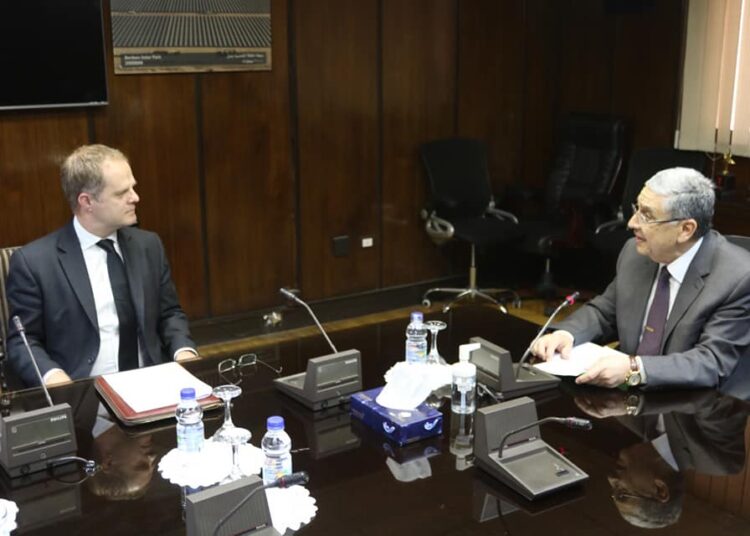Egyptian Minister of Electricity and Renewable Energy Mohamed Shaker on Monday met with British Ambassador in Cairo Gareth Bayley to discuss measures taken by the Egyptian electricity sector to reduce carbon emissions.
The two officials discussed ways to enhance co-operation with the Egyptian electricity and renewable energy sector, and to increase investment in Egypt.
The minister listed the achievements by the electricity and renewable energy sector and ambitions to expand the use of renewables and cut emissions.
The minister also referred to co-operation with the German company Siemens and local partners regarding power stations in Beni Sueif, Burullus and the New Administrative Capital, which will add 14,400 megawatts using the latest technologies.
The sector has also adding 30,000 megawatts to meet power investment projects nationwide, Shaker said, adding that part of government strategy is to increase the share of renewables in the energy mix to 42 per cent by 2035.
It is the government’s ambition to benefit from wind and solar energy, which will make Egypt one of the largest producers of renewable energy in the world, Shaker added.
The minister spoke of co-operation with international companies to start green hydrogen production as the first step towards expanding the uses of clean fuels.
Negotiations are underway with three global entities to export 3,000 megawatts to the European power grid through an underwater connection to Cyprus and Greece, Shaker said.
Egypt has been adding unprecedented capabilities to its national power grid in order to achieve economic development and energy security, Shaker said.
Boosting renewable energy exports will transform Egypt into an energy hub and an electricity carrier for Europe, the minister added.
Egypt has been self-sufficient in electricity since June 2015, and now enjoys a surplus of more than 25 percent, he said, noting that Egypt’s electricity grid also supplies Lebanon via Jordan, Libya and Sudan.
Shaker also referred to the ongoing implementation of a connection between Egypt and Saudi Arabia.
The $1.8 billion project will lead to the exchange of 3,000 MW of electricity between the two countries along one of the longest lines in the region, he said.
Nine framework agreements have been signed to produce green hydrogen and its derivatives using renewable energy, he added.
These projects will add more than 100,000 MW to the grid over the next 10 years, cutting 37 million tons of harmful emissions annually, he said.
Egypt will have produced 6,000 megawatts of electricity from renewable sources by the end of 2022, accounting for 20 per cent of the maximum energy load, Shaker said.






Discussion about this post